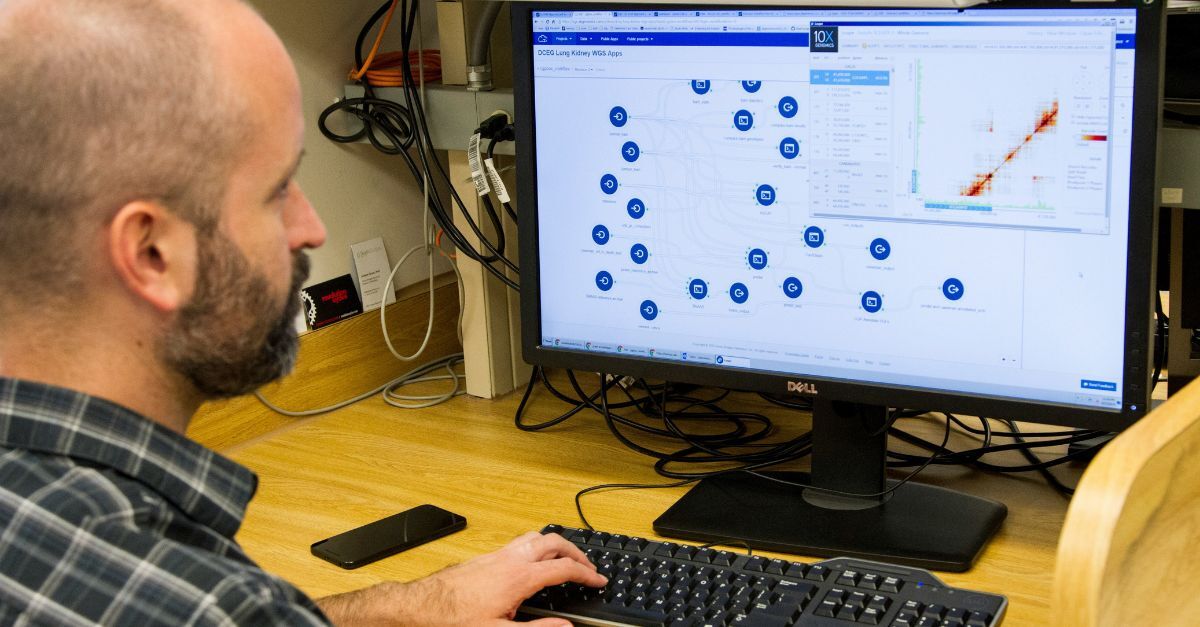6 min read
What is Content Discovery & How is AI Enhancing It?
With the vast amount of content available across the web, finding what truly resonates with you can feel like searching for a needle in a haystack....
AI holds incredible potential to solve complex problems, from boosting supply chain efficiency to advancing disease detection. By analyzing vast amounts of data, AI can uncover patterns that would otherwise go unnoticed.
However, there's a critical flaw: AI systems are only as good as the data they learn from. If the input data is flawed — whether due to lack of diversity, bias, or unequal representation — the results produced by these systems can sometimes reflect and even amplify societal inequalities.
As AI continues to shape the future, addressing these biases is essential to ensuring that technology benefits everyone fairly.
The journey of AI begins with data — the foundation on which all decisions, recommendations, and predictions are made.
Yet, data is not neutral. It is shaped by human choices during collection, labeling, and processing. Unconscious biases, such as those based on race, gender, or socioeconomic status, can unintentionally seep into AI models.
This leads to algorithms that, while accurate for certain populations, may overlook or misrepresent others. For example, facial recognition systems have historically struggled with accurately identifying darker skin tones due to limited diversity in training data.
The more we understand these biases, the better equipped we are to prevent them, ensuring AI systems reflect the diverse world they aim to serve.
When AI systems are trained on biased data, they can perpetuate harmful stereotypes and inequalities. These biases can manifest in critical areas, such as hiring practices, criminal justice, and healthcare, with real-world consequences.
For instance, AI-driven hiring tools might favor candidates who fit a certain demographic profile while unintentionally excluding qualified individuals from underrepresented groups. In the criminal justice system, biased algorithms can lead to over-policing or harsher sentencing for minority communities.
Similarly, biased health data can result in misdiagnoses or unequal access to medical care. If these issues go unaddressed, the gap between privileged and marginalized groups continues to widen, undermining the very promises of fairness and progress that AI can offer.
While AI bias is a significant challenge, there are several ways to mitigate its impact and ensure systems are more equitable.
One effective approach is increasing diversity in the teams that develop AI technologies. A diverse workforce brings a range of perspectives, which can help identify blind spots and reduce the risk of biased outcomes.
Additionally, regular audits and testing of AI systems for fairness should become standard practice. These audits can reveal patterns of bias that might not be immediately obvious during development.
Finally, using more representative and diverse data sets in training AI can help create models that are more accurate and inclusive. As AI continues to evolve, these strategies will play a crucial role in creating technology that serves everyone equally.
Despite the challenges, AI holds immense potential for promoting equity and justice. When implemented thoughtfully, AI can identify patterns that humans might miss, especially when it comes to systemic discrimination.
For example, AI systems in the hiring process can be programmed to focus on a candidate's qualifications and experience, free from human biases like gender, race, or age. Similarly, AI in healthcare can help detect diseases in underserved populations by analyzing large amounts of data, thus improving early diagnosis and care for groups that might otherwise face medical disparities.
With the right frameworks and ethical oversight, AI can be a force for positive change, driving decisions based on merit and fairness, rather than perpetuating old inequalities.
Ensuring AI development aligns with ethical principles requires ongoing commitment and accountability.
One key strategy is transparency. Developers must clearly explain how their algorithms work and the data they are trained on. This transparency allows for public scrutiny and greater trust in AI applications.
Additionally, creating ethical guidelines and standards for AI developers can help ensure that ethical considerations are embedded throughout the AI lifecycle. Encouraging collaboration between technologists, ethicists, and communities affected by AI can also ensure the technology benefits everyone, not just a select few.
With strong ethical guidelines, AI can serve as a tool for social good, promoting fairness, equity, and inclusivity in all areas of life.
While AI may cause some job displacement in certain sectors, it also opens up new opportunities for growth and innovation.
Automation can free workers from repetitive, low-skill tasks, allowing them to focus on higher-level, more creative, or intellectually demanding work. Industries such as healthcare, tech, and education stand to gain from AI, which can assist in data analysis, provide personalized learning experiences, or even help diagnose complex medical conditions.
Furthermore, the rise of AI could spur the creation of entirely new job categories, such as AI ethics consultants, algorithm auditors, and human-AI interaction specialists.
Preparing the workforce for these shifts through education and retraining initiatives will be crucial in ensuring that AI-driven job transformations result in positive outcomes for all.
AI's ability to process vast amounts of data and identify patterns makes it an invaluable tool for addressing complex global challenges, from climate change to poverty.
In environmental science, AI can help monitor and analyze climate data, predict natural disasters, and suggest more sustainable practices. In the fight against poverty, AI-powered tools can identify areas most in need of support, ensuring that resources are distributed more effectively. By using AI to optimize supply chains, reduce waste, and improve resource management, we can create a more efficient and sustainable future.
Harnessing AI for global good requires collaboration across sectors and nations, ensuring that the technology is used for the betterment of humanity rather than perpetuating existing inequalities.
AI can significantly drive economic growth by unlocking new markets, increasing productivity, and reducing inefficiencies. Businesses leveraging AI can innovate faster, create smarter products, and improve customer service.
By automating processes and enhancing decision-making, AI allows companies to focus on more strategic, value-added activities. For developing economies, AI can bridge gaps in infrastructure, education, and healthcare, enabling them to leapfrog traditional barriers to progress. This could mean greater access to high-quality services, enhanced education platforms, and more efficient agricultural practices.
The possibilities are endless, especially when AI is embraced as a tool for inclusivity and equity, ensuring that the benefits are widespread.
AI's ability to analyze massive amounts of data allows companies to offer hyper-personalized experiences that align closely with individual customer preferences. By predicting needs, automating recommendations, and tailoring interactions, AI can drastically improve customer satisfaction and loyalty.
For instance, AI algorithms in e-commerce platforms suggest products based on previous purchases and browsing behavior, while virtual assistants guide customers through tailored solutions. This customization not only boosts sales but also enhances customer engagement.
As AI continues to evolve, the depth of personalization will likely increase, creating more intimate and meaningful connections between businesses and their clients. This transformation can offer long-term benefits in customer retention and brand strength.
With great power comes great responsibility, and AI development is no exception. As AI continues to evolve, it’s crucial to ensure that it is developed ethically and responsibly. This means creating AI systems that are transparent, fair, and free from biases.
Developers must take care to prevent harmful consequences by considering the ethical implications of their work and how their systems will impact society. Businesses, governments, and tech companies must work together to establish regulations that guide the ethical use of AI, ensuring that its benefits are enjoyed by all while minimizing potential risks.
Public trust in AI will depend on its ability to serve humanity positively and equitably.
The future of AI in business looks incredibly promising. With advancements in AI technologies like machine learning, natural language processing, and deep learning, the potential for innovation is limitless.
As companies continue to adopt AI, the technology will only become smarter, more intuitive, and better at solving complex problems. The key to success will be adaptability — businesses that stay ahead of the curve, integrate AI thoughtfully, and invest in their workforce’s ongoing development will lead the way in shaping a future where AI works for all.
By embracing AI as a tool for progress, we unlock new possibilities for businesses and society at large.
As AI continues to evolve, its transformative power in business cannot be underestimated. Companies that adopt AI not only streamline operations but also open the door to innovation and future growth.
However, to fully harness the potential of AI, businesses must navigate the challenges of upskilling their workforce, ensuring ethical development, and making strategic decisions that align with their goals.
The future is clear: AI will play a central role in shaping industries, but its success lies in how businesses integrate it responsibly and creatively. By staying proactive and forward-thinking, companies can position themselves for long-term success in an AI-driven world.
Bias and discrimination in AI systems refer to when the data used to train the systems or the algorithms themselves lead to unfair outcomes, such as making decisions that negatively impact certain groups. This can reinforce societal prejudices if not properly addressed in the development process.
The two main types of AI bias are systematic bias and emergent bias. Systematic bias occurs due to biases in the data or algorithms used to train a model, while emergent bias arises spontaneously as the model learns correlations that reflect societal biases.
AI bias is unethical because it can lead to unfair and discriminatory outcomes. Biased AI systems often negatively impact marginalized groups by limiting opportunities, resources, and rights.
AI systems have the potential to reduce bias if designed properly, for example by ensuring they are trained on diverse and representative data. However, they also risk amplifying or introducing new biases if the data or algorithms have flaws or are not tested rigorously.
Meet the Author
Promevo is a Google Premier Partner for Google Workspace, Google Cloud, and Google Chrome, specializing in helping businesses harness the power of Google and the opportunities of AI. From technical support and implementation to expert consulting and custom solutions like gPanel, we empower organizations to optimize operations and accelerate growth in the AI era.

6 min read
With the vast amount of content available across the web, finding what truly resonates with you can feel like searching for a needle in a haystack....

5 min read
Research and information discovery is transforming rapidly. Artificial Intelligence (AI) has revolutionized how organizations search for, analyze,...

4 min read
When companies begin their AI journey, one of the first questions that arises is whether every department should use the same AI tool. It seems...